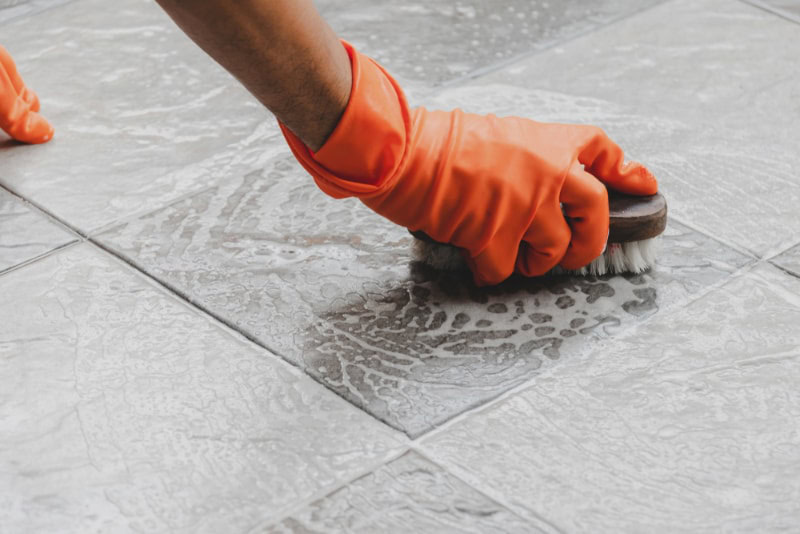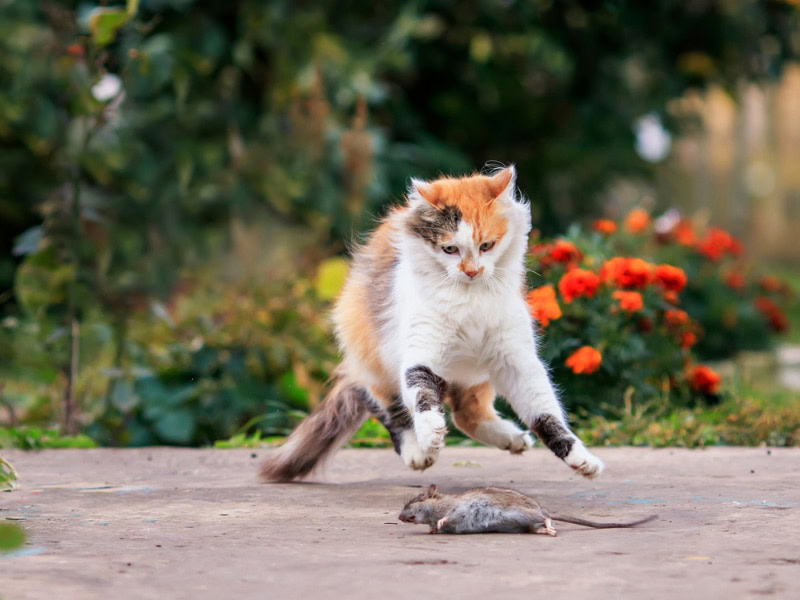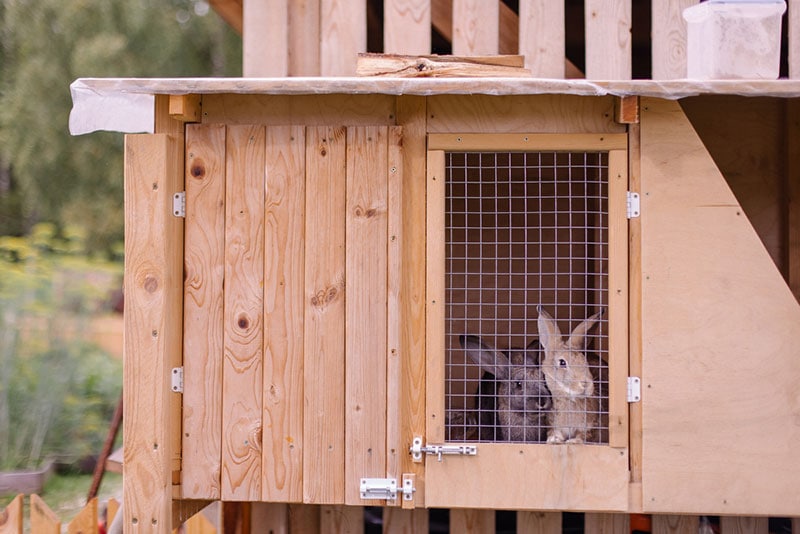VET APPROVED

The information is current and up-to-date in accordance with the latest veterinarian research.
Learn more »Cats are natural hunters, so it isn’t uncommon to see them pounce at any small creature that stumbles across their path. Even indoor felines have the desire to hunt, which is why so many cat toys are designed to have mouse-like or bird-like shapes. When your kitty is just attacking stuffed rats, it can be adorable and entertaining. But when they manage to capture a living, breathing rat, it’s much less endearing.
If your cat has just dropped a thoughtful “present” at your feet, you may be clueless about what to do next. We can help! When your pet brings you an animal, live or dead, there are three steps that you should follow. We discuss these in detail here, along with how to prevent your cat from bringing you rats in the future.

The 3 Steps to Follow If Your Cat Catches a Rat
1. Ideally, Prevent Your Cat From Eating the Rat
You must act promptly when you spot your cat with a rat. Put on latex or rubber gloves if possible. If not, you can cover your hands with plastic bags. Once your hands are protected, grab the rat by the tail, and remove it from your cat’s reach.
A swift response is vital due to the diseases that a rat can pass on to your cat. If your cat eats their catch, they may be at risk of developing issues like:
- Leptospirosis
- Toxoplasmosis
- Hantavirus
- Plague
Exposure to rat excrement can cause similar concerns, so any hunting or outdoor activities potentially put your feline at risk. That said, many cats live healthy outdoor lives hunting and catching various prey, so a risk-benefit analysis can be helpful. Speak with your vet to address the specifics for your pet.
2. Care for the Rat
If the rat is alive and injured, you can place it in a ventilated plastic container and keep it away from your cat. Then, you can contact a local animal rescue facility for further guidance. If the rat is dead, contact your veterinarian or animal control for further guidance.
3. Clean the Area of Any Urine, Feces, or Other Debris
After disposing of the rat, you must clean everything that the animal came in contact with. This includes floors, gloves, boxes, and your hands. To efficiently eliminate harmful bacteria, you can mix bleach and water to scrub over the contaminated items. Bleah diluted in this way will make it less toxic to have around your cat.
Still, even diluted bleach can be dangerous for your pet. That is why it is best to keep your cat in another room while you’re cleaning.


How to Discourage Your Cat From Catching Rats
Even though they have been domesticated for centuries, cats have never lost their inner predator. If your cat plays outside and has access to small animals, it is likely that you will end up with a thoughtful “present” now and then. If you’re looking for ways to prevent your cat’s gift-giving streak, there are a few approaches that you can take.

Keep Them Indoors
One of the simplest ways to keep rats out of your cat’s mouth is to keep your pet indoors. While it is not a 100% guarantee, as rodents can still sneak into your home occasionally, it significantly diminishes your cat’s ability to prowl for live prey. Instead, you can redirect their hunting desires to stuffed mice, puzzle toys, or other entertaining (and safe) outlets.
Place a Bell on Your Cat’s Collar
This option is less effective than keeping your cat indoors but can still be helpful. A bell on your cat’s collar will alert the prey of their approach. Hunting will be a much more difficult task for your furry friend, though skilled hunters may still be able to manage it.
However, make sure the collar that you place around your pet’s neck is a breakaway model. It should have clasps that will release if the collar gets snagged on an object. Otherwise, your cat can get stuck or choke if the collar catches on something.
Provide an Alternative
If your cat has an adequate outlet for their desire to hunt, they are less likely to feel the need to capture live prey. With your cat’s toys, you can mimic their natural prey and entice them to play with the toys rather than live rodents.

Conclusion
Cleaning up your cat’s messes is rarely fun, especially when it involves a living (or once living) animal. Although your impulse may be to panic or act rashly, be sure to take precautionary measures, such as wearing gloves and disinfecting the area. There are many ways to prevent your cat from bringing their prey home, including keeping them inside and attaching a bell to their collar.
- https://thevillagevets.com/blog/my-cat-killed-a-mouse-but-did-not-eat-it-what-to-do/
- https://www.animalhumanesociety.org/resource/my-cat-just-ate-mouse-should-i-be-worried
- https://vetmed.tamu.edu/news/pet-talk/put-a-paws-on-hunting-keep-your-cat-safe-from-rodent-carried-disease/
- https://www.vetstreet.com/dr-marty-becker/how-do-i-stop-my-cat-from-bringing-me-dead-mice
Featured Image Credit: Bachkova Natalia, Shutterstock












